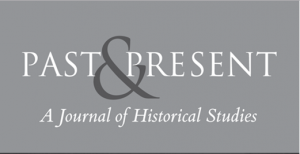by Dr. Peter Hill (Christ Church) and Dr. Hussein Omar (Pembroke) University of Oxford (workshop organisers)
‘Beyond Circulation: The Intellectual and the Material in the History of the Arab Nahda’ is an international research workshop to be held at the University of Oxford between 21 and 23 June 2018, organised by Peter Hill and Hussein Omar. It is supported by the University of Oxford via the John Fell OUP Research Fund and the History Faculty’s Sanderson Fund, and by the Past & Present Society via a conference grant.
The Arab ‘Awakening’ or Nahda of the long nineteenth century has been the object of a growing number of new histories. In these recent works, the Nahda has been regarded as the paradigmatic moment of social transformation, as Middle Eastern society was brought into ever more intense contact with expanding European imperialism and global capitalism. Yet this rich and emergent historiography has tended to be methodologically divided: with those who primarily examine the material – or how the region was integrated into the capitalist world-system – and those who predominantly examine the cultural-intellectual – or attempts to reconcile modernity with tradition – remaining unreconciled.
This three-day workshop, leading to a special issue of a journal, will explore the relationship between the material and the intellectual in the history of the Arab world in the long nineteenth century. We will invite speakers working on a range of areas within the history of this period: the translation and circulation of texts; education and cultural institutions; property, law and land tenure; famine, war and violence.
Please see here for the programme and registration details.
Past & Present is pleased to support this event and others like it. Applications are welcomed from scholars of at all career stages working on all time periods. The event’s other sponsor are the OUP’s John Fell Fund and the History Department of the University of Oxford’s Sanderson Grant scheme.

